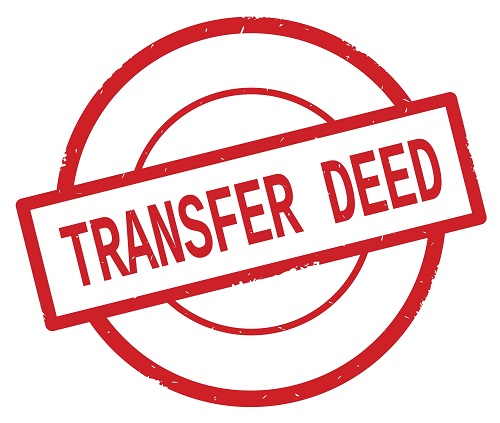You may have heard that Californians can now transfer real property, on their death, without the need of a trust or probate. A Transfer on Death Deed (a “TODD”) transfers title to real estate to the beneficiary, or beneficiaries, named in the TODD. This is good news for many people who don’t want to create a trust or have their houses go through probate after their deaths. However, there are some serious limitations and potential risks that accompany a TODD. Before you execute a TODD, consider these limitations to avoid creating unintended consequences.
Background
Before January 2016, when the TODD became available, there were basically three ways for real property to be transferred on the death of the owner.
1. Through a probate of the owner’s estate.
2. Through holding title as joint tenants.
3. Through the creation of a trust. The trust holds title to the property and the trustee transfers the property to beneficiaries named in the trust.
All three of these options have their drawbacks. Probate is a lot of work, takes time, and can be expensive. Joint tenancy transfers an interest that can’t be undone. Once you name someone as a joint tenant with you, then that person owns half the property. You can sever the joint tenancy but you can’t take back the ownership interest granted another person when you create the joint tenancy. Trusts are more expensive to create and must be maintained.
TODD
A TODD is a special deed that has no effect until the owner of the property dies. When the owner dies, the TODD causes the transfer of the property to the beneficiaries named in the TODD. A TODD works as follows.
1. The owner signs a TODD in the form required by law. The TODD lists the assessor’s parcel number, the legal description of the property, the names of the beneficiaries and the relationship of the beneficiaries to the owner. It is not acceptable to list “my children” as the beneficiaries – they must be named.
2. The TODD must be signed before a notary public and must be recorded no more than 60 days after it is signed.
3. The TODD has no effect when it is recorded. When the owner dies, the owner’s interest in the property is transferred to the beneficiaries listed in the TODD. The beneficiaries must record a death certificate to transfer title.
The beauty of the TODD is that the process is very simple. As long as the owner follows the statutory requirements, the owner’s interest in the property transfers on death. Furthermore, a TODD is revocable. An owner can file a revocation of the TODD or a new TODD at any time.
Limitations and Problems with TODD
Simple as it is to prepare, execute, and record a TODD, it comes with some significant limitations:
1. A TODD can only transfer an interest in (1) a parcel of property that contains one to four residential dwelling units, (2) a condominium unit, or (3) a parcel of agricultural land of 40 acres or less, which contains a single-family residence.
2. A TODD only transfers the owner’s interests. It has no effect on the interests of other owners of the property. For instance, if two parents own a property and want their house to go to their child, then both parents must execute separate TODDs.
3. It is ineffective as to a joint tenancy. If Alfred holds title to a property as a joint tenant with Betty, and Alfred dies first, then the property is automatically transferred to Betty on Alfred’s death. A TODD signed by Alfred would have no effect since Betty would automatically own the entire title to the property on Alfred’s death.
4. Any encumbrances on the property, such as deeds of trust or liens, remain on the property.
5. The beneficiaries of a TODD are personally liable for the unsecured debts of the deceased owner – up to the value of the property less encumbrances on the property. Example: Mom executes a TODD for her house and leaves it to Son. Mom dies when the house is worth $300,000 and has a $100,000 trust deed encumbering it. Mom also has credit card debt of $100,000. Son would be personally liable for that credit card debt. If the credit card debt was $250,000, Son would be personally liable for $200,000 of that debt (the amount of equity in the house).
6. There is no mechanism to allow for inheritance of a beneficiary’s interest. If a beneficiary dies, any remaining beneficiaries split the remainder equally. If all beneficiaries die before the owner dies, then the TODD has no effect and the property goes into probate. For example, Mom executes a TODD and gives her house to Son. Son dies before Mom. Mom’s TODD has no effect when Mom dies and Mom’s house must go through probate. Or, suppose that Alma has three children – Bill, Charlie and Dolly. Alma executes a TODD for her house naming Bill, Charlie and Dolly as the beneficiaries. All three children have children. Charlie dies and then Alma dies. Bill and Dolly get the entire house 50/50. Charlie’s estate and his children get nothing. Alma may have wished her grandchildren to get Charlie’s share but the TODD cuts them off.
7. The property can be reclaimed by the estate of the deceased owner. If the estate of the deceased owner goes through probate (for whatever reason), the administrator of the estate can compel property transferred by a TODD to be returned to the estate.
8. A TODD is not suitable for minors. An underage child named as a beneficiary will take title under a TODD but minors can’t make contracts, particularly for the sale of real estate. If the property needed to be sold, the guardian or parent of the child would have to go to court to be named guardian ad litem to sell the property. It’s always better to create a trust to hold property for a minor.
Transfer on Death Deeds are an effective way to transfer property. However, careful consideration should be given to the suitability of a TODD based on its limitations and the circumstances of the owner of the property. It might look like a good, low cost alternative to a trust. But in many cases, a TODD cannot protect your assets and ensure transfer to your intended beneficiaries.
For more information about TODDs or other estate planning issues, please contact us today.
Eric D. Morton is the principal attorney at Clear Sky Law Group. He can be reached at (760) 722-6582 or (510) 556-0367 or via email at emorton@clearskylaw.com.



